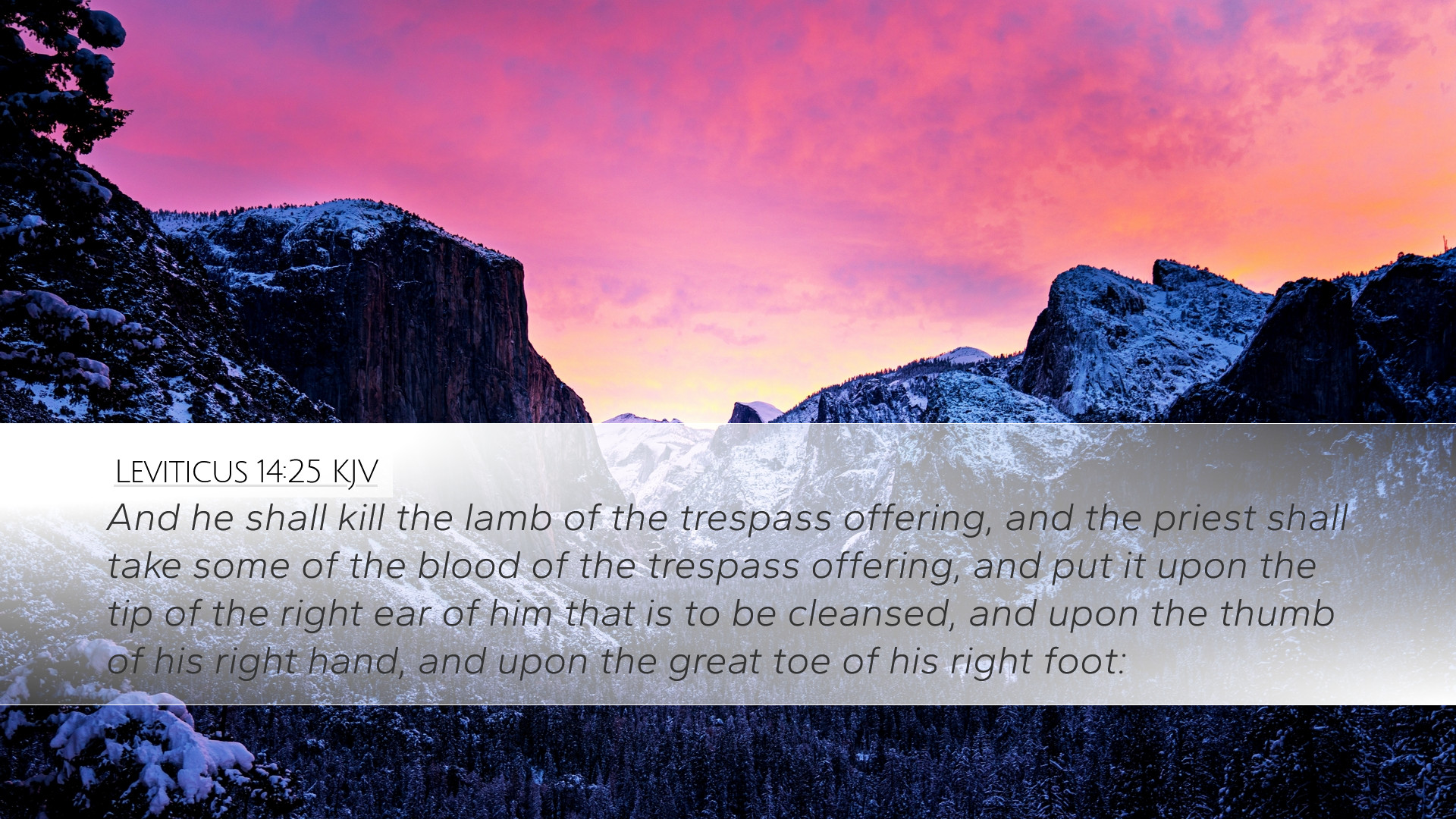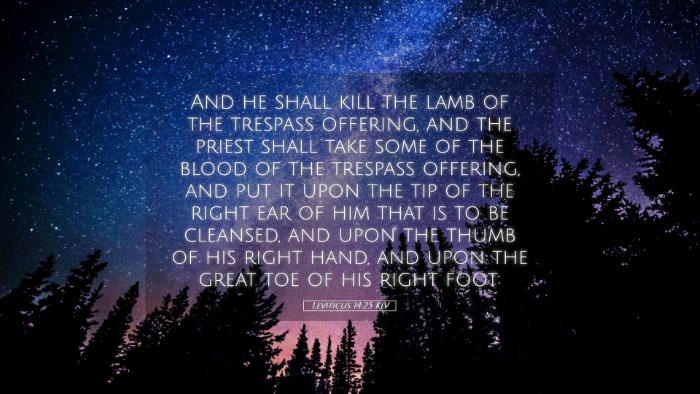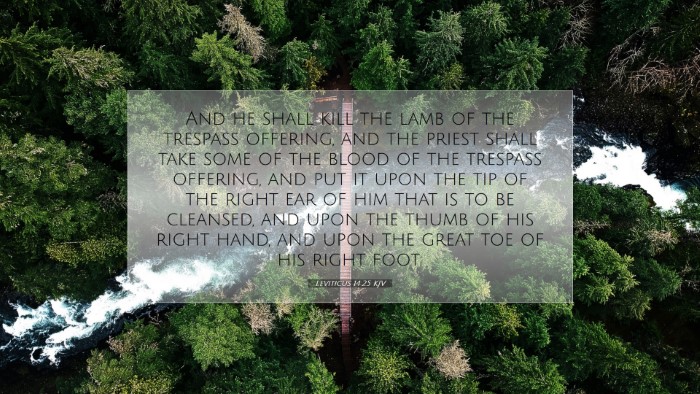Commentary on Leviticus 14:25
Leviticus 14:25 is a pivotal verse in the context of the law concerning ceremonial uncleanness, particularly in relation to leprosy and its purification rites. This verse describes a specific part of the process that the priests must follow during the ceremonial cleansing of the cleansed leper, emphasizing the significance of sanctification and divine order in Israel's worship practices.
Text of Leviticus 14:25
"And the priest shall kill the sacrifice of the trespass offering, and the fat of the trespass offering shall be put upon the altar." (Leviticus 14:25, KJV)
Contextual Significance
This verse occurs within a broader framework of laws that God instituted for the nation of Israel regarding health and holiness. The procedures laid out in Leviticus aim to maintain the sanctity of the camp of Israel and illustrate God's holiness through rituals. The act of cleansing the leper symbolizes both physical and spiritual restoration.
Theological Implications
- Symbolism of Atonement: The trespass offering denotes atonement for sin and reconciliation with God. The priestly actions here reflect a deeper theological theme where the laid-out procedures restore not just the individual’s physical state but also their relationship with God.
- Role of the Priest: The priest acts as a mediator between God and the people, illustrating the need for a mediator in approaching God. This foreshadows the ultimate priestly role of Jesus Christ in the New Covenant.
Insights from Commentators
Matthew Henry
Matthew Henry emphasizes the importance of the priest's role in this process, elucidating that the ceremonial rites are not mere tradition but vital elements of worship that reflect spiritual truths. He illustrates that the sacrifice signifies both an acknowledgment of one's sin and a means of approaching God for restoration. Henry notes the significance of the fat, which was considered the choicest part, indicating that the best should be offered to God.
Albert Barnes
Albert Barnes expands on the notion of the trespass offering, emphasizing its connection to restitution and reparation. He explains that one of the purposes of this offering was to emphasize the seriousness of communal and individual sin, thus fostering a deep sense of accountability within the Israelite community. Barnes also highlights how the act of placing the fat on the altar signifies the divine acceptance of the offering and the restoration process of a community torn by the consequences of sin.
Adam Clarke
Adam Clarke provides an extensive analysis of the ritual and its implications for subsequent generations. He remarks on the symbolic importance of the blood and the fat in the sacrificial rites, linking them to the greater sacrificial system that prefigures Christ's ultimate sacrifice. Clarke notes that this act not only cleanses but also re-establishes the individual within the community of faith, stressing the need for ongoing purity and worship.
Application for Today
The principles derived from Leviticus 14:25 extend beyond the ancient Israelite context and provide valuable lessons for modern believers:
- Understanding Sin and Atonement: The text reminds believers of the need for confession and repentance in their devotional lives. Atonement remains a foundational element of the Christian faith, pointing to the need for heart transformation.
- The Role of the Church: Like the priests of old, church leaders today are called to guide believers in understanding the significance of sin and grace, fostering a community where spiritual healing takes precedence.
- Holiness and Worship: Engaging in worship that reflects God’s holiness and acknowledging the need for purity in spiritual practices retains its importance. Christians are called to offer their lives as living sacrifices, holy and pleasing to God (Romans 12:1).
Conclusion
Leviticus 14:25 offers profound insights into the nature of God's holiness, the serious nature of sin, and the grace that leads to reconciliation. Drawing from the reflections of notable commentators, modern readers can glean timeless truths applicable to their walk with God. By recognizing the patterns of atonement in this sacrificial system, believers are drawn to appreciate Christ's perfect sacrifice and the ongoing need for spiritual renewal.


